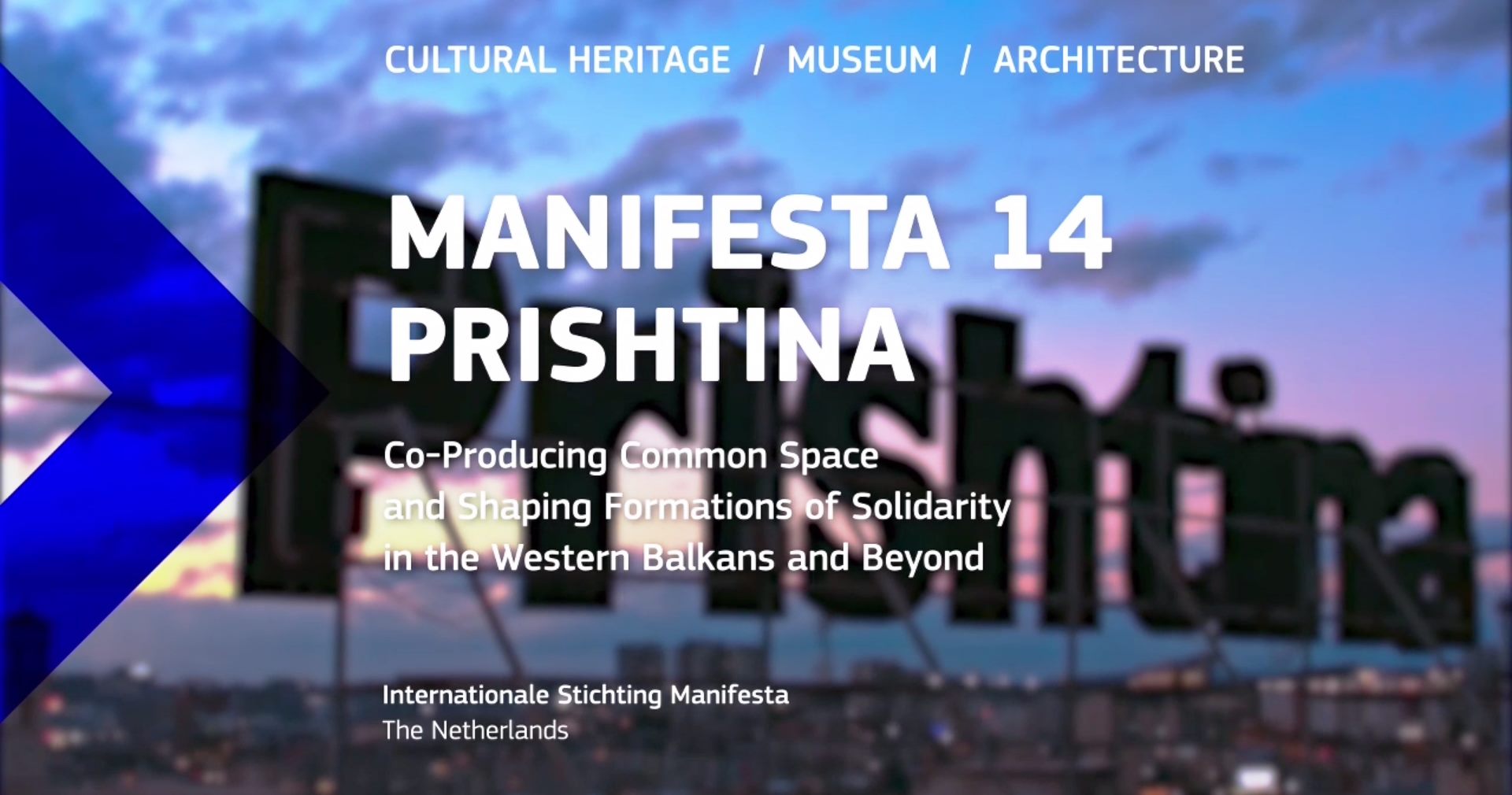Manifesta 14 Western Balkans

Date of Implementation: 2020 – ongoing
Partners: International Foundation Manifesta, The Netherlands and partners from the Western Balkans: RRITU (Termokiss) Prishtina, Museum of Contemporary Art (MoCA) Skopje, Quendra Harabel Tirana, APSS Institute Podgorica, NGO Aktiv Kosovo, Meydan D.O.O. (Hestia) Belgrade, Kosovo Architecture Foundation (KAF), Institute of Contemporary Art (ICA) Sofia, European Roma Institute for Arts and Culture (ERIAC) Berlin.
Supported by: Creative Europe Western Balkans grant by the European Union
Official Website: https://manifesta14.org/
PCRC is pleased to be a partner in the Manifesta 14 Western Balkans Project: Co-Producing Common Space and Shaping Formations of Solidarity in the Western Balkans and Beyond, co-funded by the European Union.
The International Foundation Manifesta, the initiator of Europe’s only nomadic cultural biennial and initiator of the Manifesta 14 Western Balkans Project, is collaborating with the City of Prishtina, Kosovo to develop Manifesta 14 Prishtina which will open its doors from the 22nd of July to the 30th of October 2022.
Organised for the occasion of the biennial, the International Foundation Manifesta has set up the Manifesta 14 Western Balkans Project which aims to enlarge the outreach and duration of the European Nomadic Biennial by developing a cross-regional collaborative platform including a vast array of cultural and civic activities across the region. An integral objective of the project is to open up the Western Balkan to create a project that breaks the confines of isolated cultural infrastructures and networks.
Liking architecture, urban planning, human rights, arts and culture, the Manifesta 14 Western Balkans Project proposes a plethora of diverse activities in 2021 and 2022 ranging from in-depth cultural research, expert talks and conferences to exhibitions and events across the region.
The partner network of the Manifesta Western Balkans Project promotes a politics of care between different communities in the Western Balkans and aims to stimulate broader cross-border network structures, where knowledge production and local expertise can thrive.


